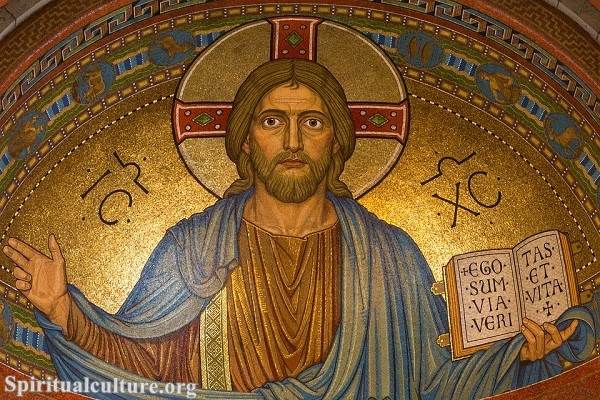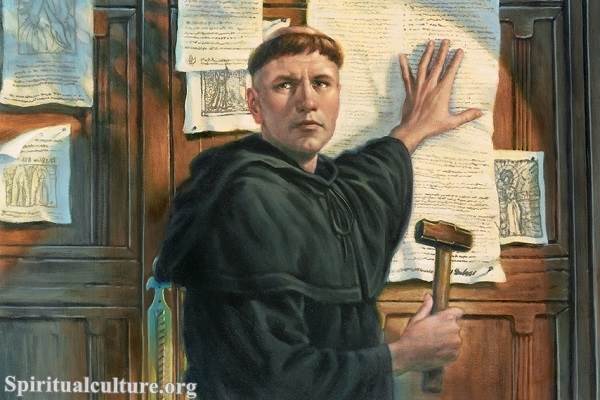Throughout history, few spiritual movements have reshaped human society as profoundly as Protestantism. This article explores how Protestantism ignited a transformative wave in literacy and education, driven by the soul’s longing to know God personally and understand sacred truths firsthand.
When hearts yearn to encounter the Divine without intermediaries, a thirst for knowledge is born. Protestantism, with its emphasis on direct engagement with the Scriptures, turned this yearning into a cultural revolution. Today, we will journey through this sacred evolution, seeing how it shaped not only individual lives but the destiny of nations.
The Protestant Reformation: A Cry for Direct Access to the Word
Reclaiming the Sacred Text
At the heart of Protestantism was a radical conviction: every believer should have direct access to the Bible. This was revolutionary in a world where Scripture had long been confined to the clergy, written in Latin and locked away from ordinary people.
Martin Luther, a German monk and a key figure of the Reformation, boldly declared:
“A simple layman armed with Scripture is to be believed above a pope or a council without it.”
By translating the Bible into vernacular languages—German, English, French, and others—the Reformers opened a door through which the common soul could walk, gaze upon divine truth, and be transformed.
Literacy as a Spiritual Mandate
Reading was no longer a luxury; it became a holy duty. To encounter God personally, one had to read His Word. Thus, literacy, once the privilege of elites, became a spiritual necessity for all.
In Protestant communities, teaching children and adults to read was viewed not merely as a civic good but as an act of spiritual mercy.
Protestantism’s Foundational Principles and Their Influence on Education
Sola Scriptura and the Need for Literacy
The Protestant doctrine of Sola Scriptura (“Scripture alone”) asserted that the Bible was the sole authority in matters of faith. This teaching made literacy essential for spiritual growth.
Without the ability to read Scripture, how could one:
- Know God’s promises?
- Understand Christ’s teachings?
- Live according to divine guidance?
Thus, literacy was wedded to salvation itself.
The Priesthood of All Believers
Another cornerstone of Protestant belief was the “priesthood of all believers,” meaning that every Christian had the right and duty to approach God directly.
This democratization of spirituality demanded education. If each person was to fulfill their priestly calling, they needed the tools of reading, critical thought, and scriptural discernment.
Protestantism and the Rise of Public Education
The First Schools for All
In the wake of the Reformation, Protestant regions rapidly established schools. Martin Luther urged the creation of public schools where boys and girls alike could learn to read and write.
He wrote passionately:
“When schools prosper, the Church remains righteous and her doctrine pure. Young pupils and students are the seed and source of the Church.”
States like Saxony and cities like Geneva mandated universal education long before it became standard elsewhere in Europe.
Catechisms and Educational Materials
To support this new educational imperative, Protestants developed:
- Catechisms: Simple question-and-answer guides to faith
- Primers: Basic reading books containing Scripture and prayers
- Psalters: Collections of Psalms used to teach reading and singing
Education was infused with spiritual formation at every step.
Literacy as a Cultural Force: Protestantism’s Broader Impact
A Reading Culture Emerges
Protestant societies cultivated a “reading culture,” where books, pamphlets, and personal Bibles became household treasures.
By the 17th century, literacy rates in Protestant regions like Scotland, Scandinavia, and parts of Germany were significantly higher than in Catholic areas. Reading was seen not just as an ability, but as a virtue.
The Printing Press and Mass Education
The Reformation coincided with the spread of the printing press—an invention that Luther and other Reformers used masterfully.
Cheap printed materials flooded Europe:
- Translated Bibles
- Sermon collections
- Religious tracts
- Schoolbooks
Wherever Protestantism went, an explosion of affordable literature followed, further advancing literacy.
The Protestant Ethic and the Pursuit of Knowledge
Faith and Reason Together
Protestantism nurtured a harmonious view of faith and learning. Seeking God through Scripture encouraged:
- Logical reasoning
- Critical inquiry
- Personal reflection
This intellectual climate would later nourish the scientific revolution and the development of modern universities.
Universities and Higher Learning
Protestant regions founded renowned universities, such as:
- The University of Marburg (1527)
- The University of Geneva (1559)
- Harvard College (1636), in Puritan New England
These institutions emphasized theology, philosophy, and the liberal arts—training both clergy and lay leaders to engage thoughtfully with faith and the world.
Protestant Movements and Education for the Marginalized
Expanding Access
Protestant commitment to literacy and education extended to groups long neglected:
- Women: Girls were taught to read alongside boys, a radical innovation for the time
- The Poor: Charity schools offered basic education to the impoverished
- Minorities: Protestant missionaries established schools for indigenous peoples, enslaved Africans, and marginalized communities
Wherever the Protestant spirit went, education became a beacon of dignity and opportunity.
Sunday Schools and Adult Education
The rise of Sunday Schools in the 18th century reflected this ethos. These schools taught working children and adults not only religious instruction but also basic literacy.
Reading the Bible became a gateway to broader intellectual and social empowerment.
Sacred Texts that Inspired the Educational Mission
Biblical Mandates
Scripture itself fueled the Protestant passion for literacy and learning:
- Deuteronomy 6:6-7: “These commandments that I give you today are to be on your hearts. Impress them on your children.”
- Proverbs 4:7: “Wisdom is supreme; therefore get wisdom. Though it cost all you have, get understanding.”
- 2 Timothy 3:16-17: “All Scripture is God-breathed and is useful for teaching, rebuking, correcting and training in righteousness.”
The Bible was not seen as an abstract text, but as living wisdom—a flame meant to be passed from heart to heart.
The Modern Legacy of Protestant Educational Ideals
Shaping Democracies
Protestant literacy efforts laid foundations for modern democracies, where informed citizens could read laws, debate ideas, and participate in governance.
Global Missions and Education
Protestant missionaries in the 19th and 20th centuries established schools worldwide, linking evangelism with educational development.
Today, many universities across Africa, Asia, and the Americas owe their origins to Protestant educational missions.
Continuing the Call
Even now, Protestant communities remain deeply invested in education, running schools, universities, and literacy programs around the globe.
The spirit of “reading to know God” continues to inspire “reading to know the world.”
Reflect and Reimagine
The Protestant Reformation did more than challenge church doctrines; it ignited a sacred hunger for personal engagement with divine truth. This hunger birthed a revolution in literacy and education that echoes into our own time.
When the soul seeks God, it demands to read, to understand, to question, to grow. Protestantism reminds us that education is not merely a societal tool but a spiritual gift—an invitation to encounter truth, cultivate wisdom, and share illumination with others.
Today, as we witness ongoing struggles for literacy and access to education worldwide, the Protestant legacy beckons us: teach, learn, and open the Word—for through it, hearts awaken, cultures transform, and the world draws closer to the Light.
May we carry forward this sacred heritage with humility, passion, and hope.


